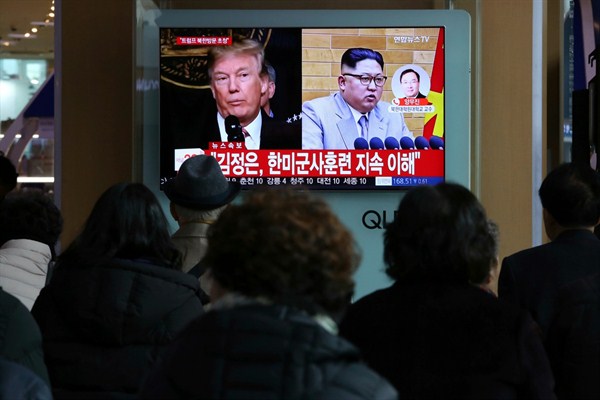Loading your audio article
The Korean Peninsula has long been a very dangerous place. Over the past several years, it became even more so as the North Korean regime began testing nuclear weapons and—most recently—ballistic missiles that could threaten the United States. Alarmed at this, the administration of President Donald Trump has pushed back hard and repeatedly stated that it will do anything necessary to counter this threat, including the preventative use of military force.
For the past year, the heightened tensions and belligerent rhetoric on both sides have raised fears of a catastrophic conflict. But in a stunning turnabout earlier this week, North Korea’s leader, Kim Jong Un, reportedly told visiting South Korean envoys that he was willing to negotiate with the United States about abandoning his nuclear weapons, and would suspend all nuclear and missile tests while the talks were underway. According to the South Korean envoys, Kim said that North Korea would have no use for nuclear weapons if its security could be guaranteed.
This reversal of Kim’s previous refusal to even discuss denuclearization provides a tantalizing opportunity to reshape the conflict between North Korea and the United States. But massive obstacles stand in the way.

